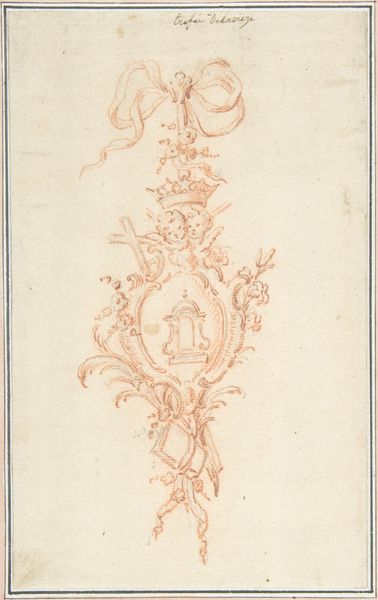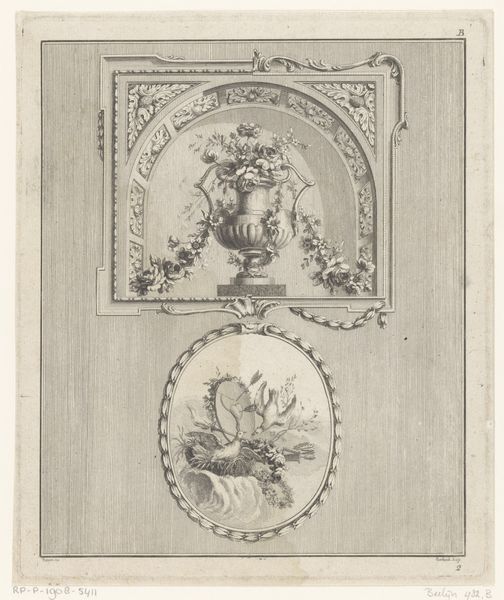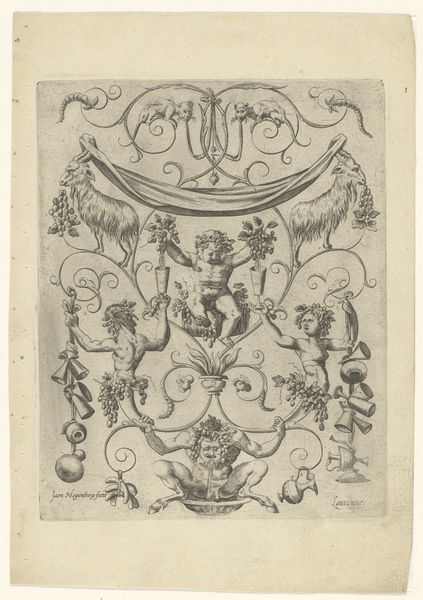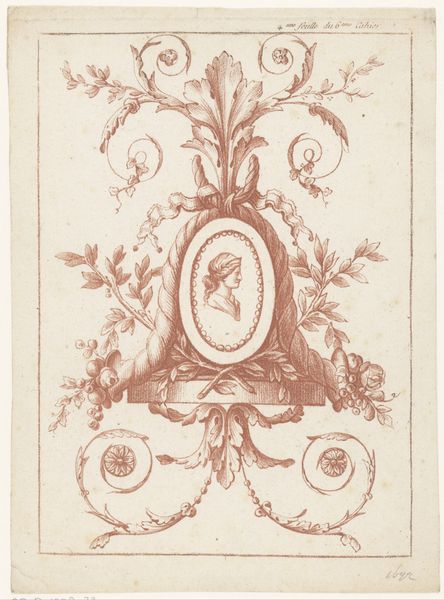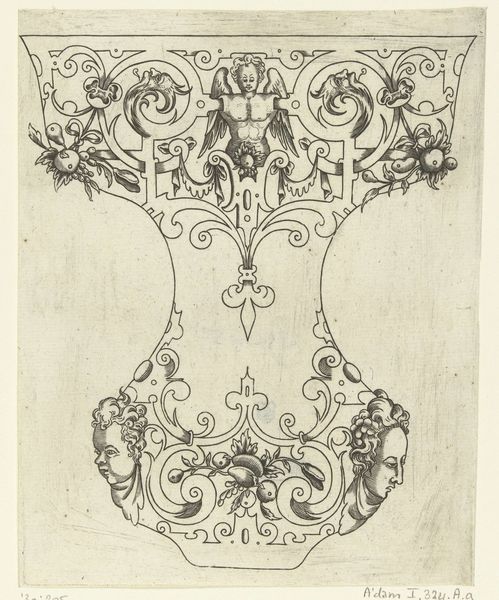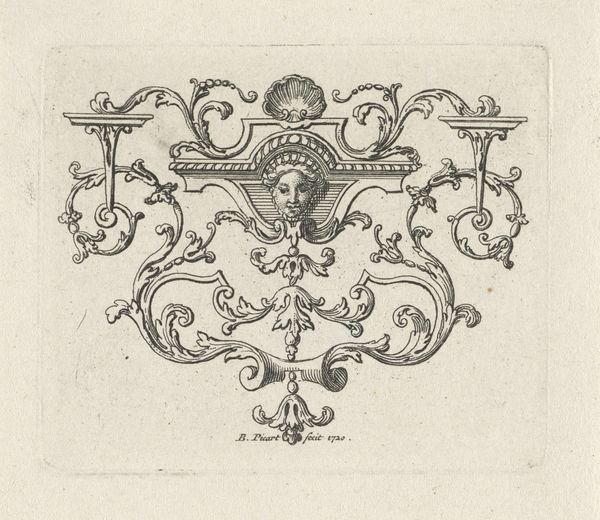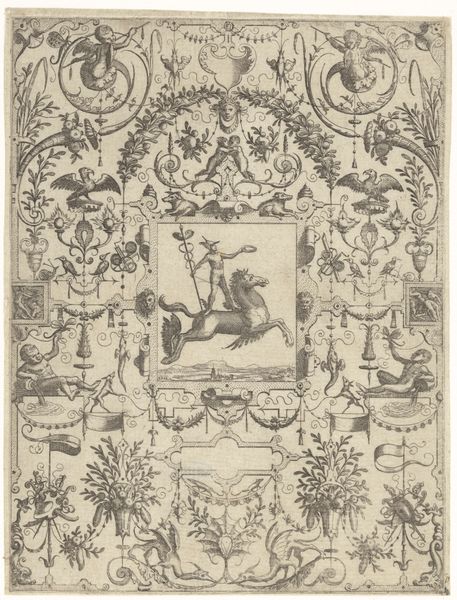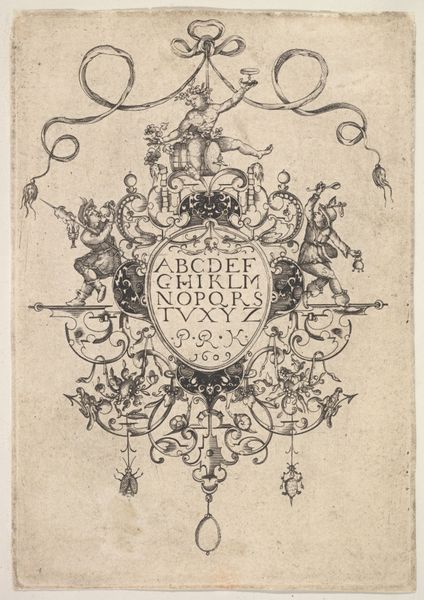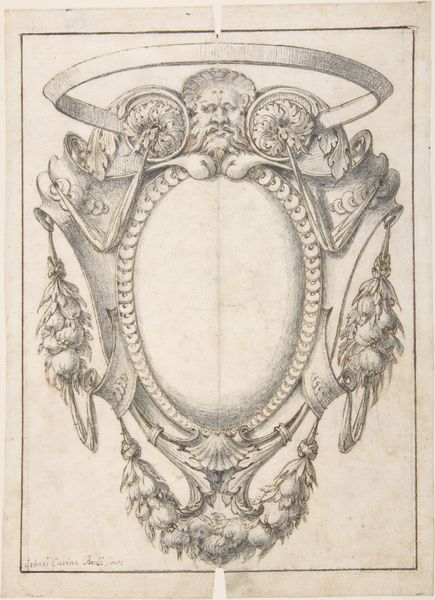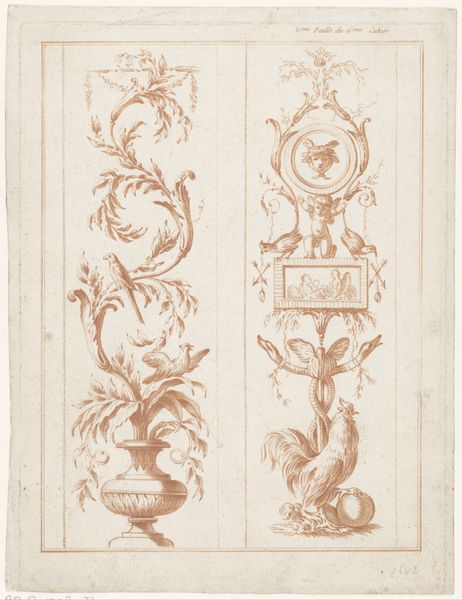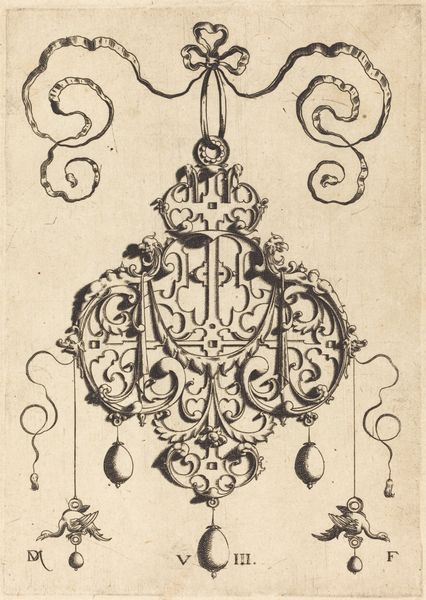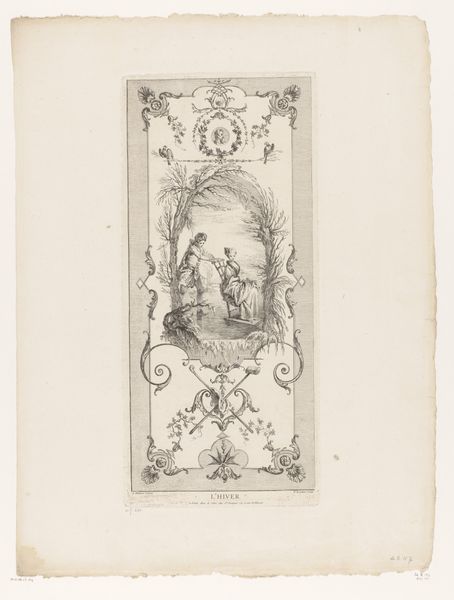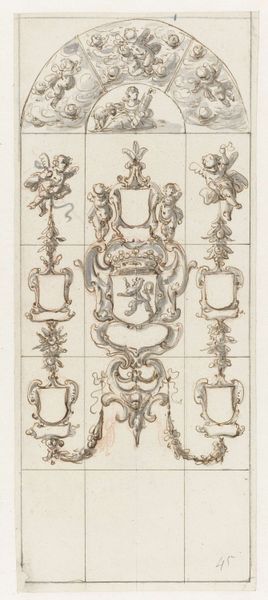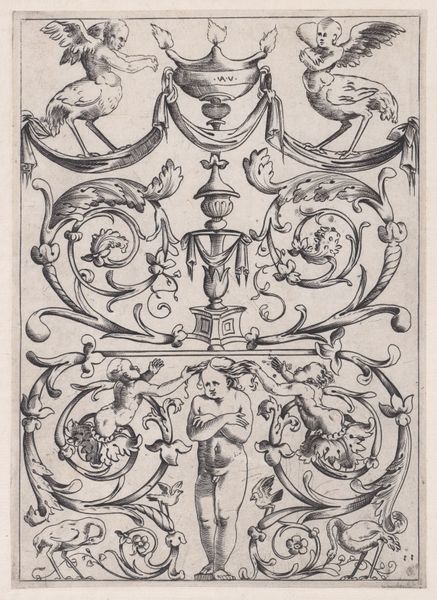
Dimensions: height 247 mm, width 184 mm
Copyright: Rijks Museum: Open Domain
This drawing, "Medaillon en putti", was made at an unknown date by an anonymous artist. Likely produced as a design for architectural decoration, it shows the popularity of classical motifs in the 18th century. These visual codes carry cultural associations. The putti, or cherubic figures, evoke a sense of innocence and playfulness, linking back to a tradition of religious art. Meanwhile, the medallion format suggests ancient Roman coins and cameos, symbols of power and prestige. This was the age of the Rococo and a renewed interest in classical antiquity. We can see how the arts establishment operated at this time by noting the inscription at the bottom of the image. The print was made by J.B. Huet, a "Peintre du Roi," or Painter to the King. By looking into the institutional history of royal patronage, and by researching popular taste through sources like design books and architectural plans, we can begin to understand the social life of this image.
Comments
No comments
Be the first to comment and join the conversation on the ultimate creative platform.
